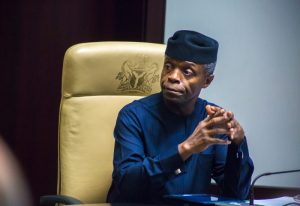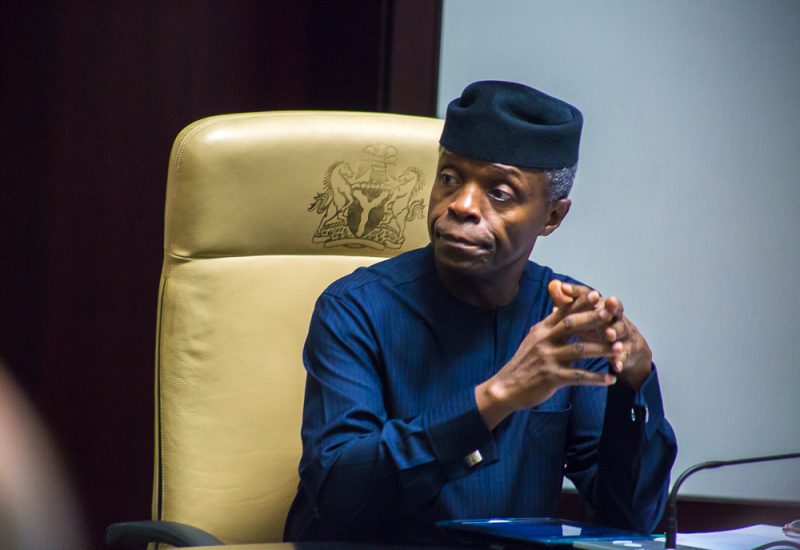Nigeria requires $2.3 trillion over the next 30 years to address the infrastructural deficit confronting the country.
Vice President Yemi Osinbajo, who made this known on Thursday during the opening of a two-day retreat of the National Council on Privatisation, said since government’s resources were completely insufficient, the only way to bridge the gap was by Public-Private Partnership (PPP) arrangement in one form or the other.
Osinbajo cited statistics from Nigerian Integrated Infrastructure Master Plan and the Economic Recovery and Growth Plan 2017-2020 to buttress his point.

“Nigeria will require at least $2.3 trillion over the next 30 years to bridge this gap. The review of budgetary allocation for capital expenditure even over the past decade will show that government resources are completely insufficient for this purpose”, Osinbajo, said
He added that the government could take either commercial or concessionary loans for infrastructural development, but it would be an additional burden on a usually considerably leveraged balance sheet.
Osinbajo said: “There is a large pool of investable funds from both local and international investors for the development and maintenance of infrastructure.
“But these are only accessible where there is a business case to be made for developing public infrastructure.
“So, for both institutional and individual investors, there is far more comfort with lending or with equity participation where a private sector entity partners with a public authority owner of the infrastructure.
“This way the public partner can play its natural role of a regulator (regulation and policy), leaving business to the private sector whose reason for being is business. So, for investors, PPP presents the best of both worlds.”
While urging participants, drawn from the private and public sectors at the retreat, to remain focused on the objectives of the meeting, the Vice President emphasised that developing a framework that would be attractive to investors should be topmost in their deliberations.
However, in the opening remarks by the Director-General of BPE, Alex Okoh, said the current economic environment required the government to adopt innovative ways of attracting resources for infrastructure development.
He said an amendment of the BPE Act would among other things expand private sector participation in the Nigerian economy as well as attract more foreign capital to different sectors of the economy.


